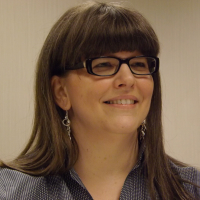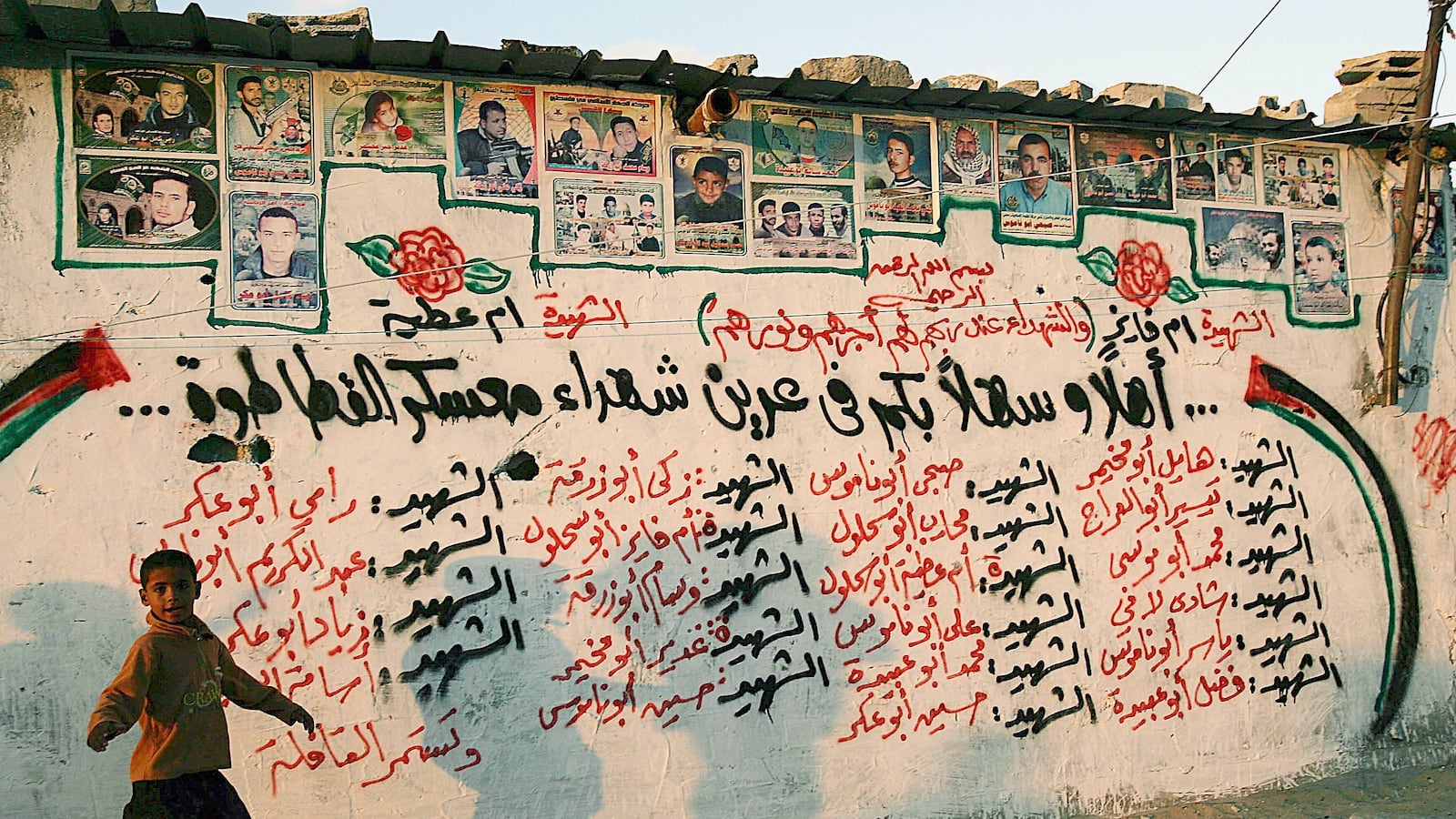Twenty-five years ago, we were two weeks into the first intifada, but we didn’t know it yet. We were calling it “disturbances,” or “riots,” or just sitting with our mouths agape, our hearts pounding out of our chests, as we watched the nightly news. Even when we started calling it the intifada, we didn’t realize it was the first.
Israel was a smaller place then. There was only one TV station, only one news broadcast, 9 o’clock every night, Haim Yavin at the helm, telling us what had happened across the border in what we then still sometimes called the administered territories, showing us footage of a kind of rage that stopped us in our tracks and caught our breath in our throats.

I was working toward my Bachelors degree at Tel Aviv University at the time, and that rage was all anyone could talk about. We would stand outside our classrooms and talk about it, sit on the bus and talk about it, go to parties and talk about it. And at 9 o’clock on the dot, someone always turned on the television.
My boyfriend at the time was a shiriyoner, a tank commander, in reserves, and from the intifada’s earliest stages, he and all the other young men who had so recently left Lebanon were thrown into a kind of endless roundabout of call-ups, returning to the uniform, sent into the maw of something for which they’d never been trained, told to do what the politicians couldn’t do: Make it stop.
He would come home from weeks away and our evenings would be consumed with the same conversations, this time with other young men who had also just come back from that same maw. His nights were sometimes consumed with nightmares. He was gone so much that he failed his classes, a year of university studies gone in a barrage of rocks.
I know now that those rocks were an odd, twisted kind of violent non-violence. The Palestinian factions had arms, plenty of arms—they chose not to use them. They chose to focus mostly on trying to establish methods of civil disobedience and mutual support networks, to cut the occupation off at its knees without resorting to all-out warfare.
But rocks can kill, and so can cinder blocks and Molotov cocktails, and all that rage—Tel Aviv was full of young women like me, just waiting.
It was then that so many of my generation discovered where we really stood. I had a gentle friend who I’d cherished for years, an air force navigator, who told me that if he were Palestinian and in one of those refugee camps, he would be grateful for everything Israel had given him. I had another friend, the son of a Holocaust survivor, tell me he felt like a Nazi. And the boyfriend—the boyfriend did everything within his power to keep the madness and the rage at bay, to be a human in an inhuman circumstance. At the time I remember being glad he was in Gaza, because the guys who actually wanted to be in Gaza were the guys who actually killed people.
It was during those endless conversations, those endless nights with Haim Yavin and my shell-shocked friends, that I came to realize that if Israel really wanted the intifada and all it stood for to truly end, there were two choices, even if Israel didn’t want to admit it: Kill and/or expel all the Palestinians, or negotiate a second state. Two states for two peoples, we called it then, and at the time the idea was borderline traitorous.
Today of course, the two state solution has taken on a utopian cast, because in twenty-five years, we have accomplished nothing. Nothing but countless more deaths, countless more nightmares, countless more moments of sheer inhumanity. Another intifada (and maybe a third on the way), suicide bombings, a few wars, and the ceaseless grinding noise of the settlement project, building on and on and on.
I’ve spent a quarter of a century fighting for a two state peace. I completed my BA, started working as a reporter, fell in and out of love, married a Jerusalemite. There was a time that I knew that I would raise children in Tel Aviv, children who would visit their Palestinian friends on school vacations, crossing the border to Palestine with ease and excitement, happy to be driving the hills that roll out from Israel to Ramallah or Jericho.
All those boys—they were mostly boys—on both sides of the intifada who were doing what society and circumstance called their duty are now as middle-aged as me. I remember their faces, I remember their dreams. I don’t really hope for much anymore.






